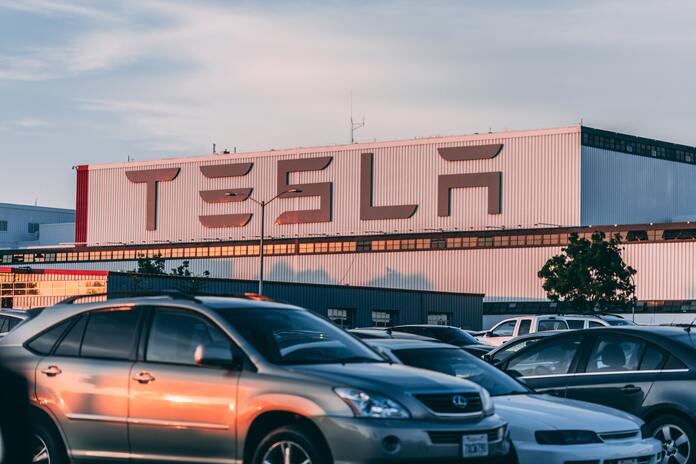Tesla (NASDAQ:TSLA), the world’s leading electric vehicle (EV) manufacturer, experienced a remarkable 15% surge in its stock price on Monday, marking its strongest trading day in over three years. The surge followed reports confirming that Tesla’s Model Y and Model 3 vehicles are compliant with Beijing’s stringent data security regulations, a significant milestone toward the full deployment of its Full Self-Driving (FSD) software in China.
Since announcing its first-quarter results on April 22, Tesla’s stock has surged over 30%, narrowing its year-to-date decline to approximately 21%, albeit still trailing the broader equities market. The latest development raises the question of whether Tesla can capitalize on this momentum.
China’s Status as the Largest EV Market
China stands as the world’s largest EV market, accounting for 60% of total vehicle sales in 2023, making it a crucial growth driver for Tesla. Despite facing competition from domestic manufacturers like BYD (BYD) and Nio (NYSE:NIO), Tesla has made significant inroads in China and sees the full rollout of FSD software as a potential revenue booster. FSD, an upgraded version of Tesla’s Autopilot software, has been offered with restrictions in China, where Tesla’s vehicles feature Level 2 driver-assistance systems.
Tesla’s collaboration with Baidu (BIDU), often dubbed “the Google of China,” has facilitated access to mapping and navigation technology crucial for FSD. Leveraging Baidu’s mapping license, Tesla aims to operate FSD technology legally in China while gathering essential data on traffic, road signs, and routes. This partnership has bolstered confidence among regulators regarding data security requirements, although Tesla China has yet to provide a timetable for FSD’s introduction in China.
Regulatory Breakthrough and Market Position
While specifics remain scarce, the regulatory breakthrough is seen as a significant victory for Tesla amidst the burgeoning EV market competition in China.
Tesla’s Prospects Amidst Challenges
Despite the recent stock rally, Tesla still trades over 50% below its all-time highs, reflecting challenges in consumer demand and macroeconomic headwinds. Sluggish demand and macro factors, including rising interest rates and inflation, have hindered Tesla’s performance. Additionally, price reductions to counter competition have compressed profit margins. For instance, Tesla reported a decline in gross profits by 18% and adjusted net income by 48% in Q1 of 2024, missing analyst estimates.
Investment Outlook and Analyst Recommendations
Tesla’s stock has garnered mixed analyst sentiments, with a consensus rating of “hold” from 30 analysts covering the stock. While some recommend a “strong buy” or “moderate buy,” others suggest a “strong sell.” The average target price of $176.75 implies a modest downside from current levels.
Valuation and Growth Projection
With a market cap of $618 billion, Tesla’s sales are projected to decline by 2.9% to $94 billion in 2024, accompanied by a 23% decrease in earnings to $2.40 per share. At 80.8x forward earnings, TSLA stock appears relatively expensive given its decelerating growth trajectory. Investors must weigh these factors carefully when considering Tesla as an investment option.
Featured Image: Megapixl















